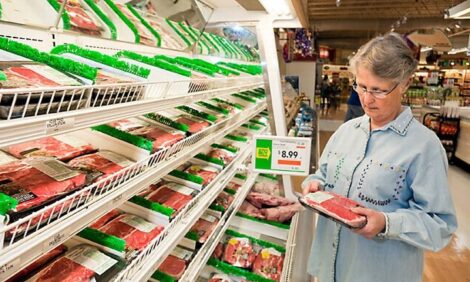



EU Appeals WTO Ruling on Hormone Treated Meat
EU - The EU yesterday began to appeal elements of the WTO panel decision of 31 March 2008 reguarding the debate over US and Canadian exports of hormone treated meat.On the one hand the WHO panel decision had condemned the US and Canadian sanctions imposed on EU exports in retaliation for EU restrictions on the import of hormone-treated meat.
While the EU welcomed the panel’s confirmation that the US and Canada had unilaterally maintained these sanctions in breach of WTO rules, the EU disagrees with the panel’s additional finding that it did not consider the new EU hormones directive to comply with the WTO Agreement on Sanitary and Phytosanitary Measures. The panel also failed to make a sufficiently clear recommendation to the effect that the US and Canada must remove their WTO-illegal retaliatory measures.
The panel agreed with the EU that the US and Canada have illegally maintained retaliatory measures despite the fact that the EU adopted new rules on hormone-treated imports in 2003, in response to earlier US and Canadian criticism. Despite these new rules the US and Canada unilaterally decided to maintain sanctions without testing the legality of the EU's rules at the WTO. The Panel agreed with the EU that this is a clear breach of WTO rules, and the EU is not appealing this part of the decision.
The EU believes that the panel made legal errors when it found that the new EU hormones directive does not comply with the WTO Agreement on Sanitary and Phytosanitary Measures. In particular, the EU believes the panel:
- was not entitled to make findings on this matter;
- failed to establish the facts objectively;
- exceeded its powers by selectively relying on scientific experts that lacked the required impartiality, rather than accepting
- the existence of legitimate scientific controversy and uncertainty;
- erred in putting on the EU the burden to demonstrate the WTO-compatibility of its hormones directive;
- applied inappropriate standards regarding the required scientific basis for health protection measures.
The EU notes that the panel explicitly said that it did not have jurisdiction to rule on the WTO-conformity of the EU Directive establishing the restriction of hormone-treated meat imports and that its assessment did not change the fact that the US and Canada are applying sanctions illegally. Yet, the panel’s assessment is so flawed that the EU has decided to request the Appellate Body of the WTO to overturn it. The US and Canada are entitled to appeal the panel report as well, and are likely to do so.
Background
The EU has banned the use of growth-promoting hormones and the import of meat treated with hormones since the early 1980s. This non-discriminatory ban was tested at the WTO by Canada and the US in 1996, claiming it was inconsistent with WTO rules. The WTO Appellate Body found in 1998 that the EU rules were not consistent with parts of the WTO Agreement on Sanitary and Phytosanitary Measures in as much as the scientific risk assessments supporting the EU restrictions were not sufficiently specific. Subsequently, the US and Canada requested, and were granted by the WTO, authorisation to impose sanctions on the EU - a 100% import duty on EU exports to the value of US$116.8 million and CAN$11.3 million. These duties have been applied to a range of agricultural products and some manufactured goods since the summer of 1999.
On 14 October 2003, a new EU Directive was adopted, based on thorough scientific grounding for the EU restrictions on the use of hormones in raising cattle and imports of meat treated with hormones. The scientific risk assessment drew on the 1999, 2000 and 2002 reports of the EU Scientific Committee on Veterinary Matters relating to Public Health, which concluded that for one of the six hormones in question (oestradiol 17ß) there was substantial evidence that it causes and promotes cancer and that it harms genes. The EU has a permanent ban on the use of this hormone for growth promotion purposes.
In five other cases (the hormones testosterone, progesterone, trenbolone acetate, zeranol and melengestrol acetate), the current state of knowledge of the hormone substances does not allow the risk to be accurately determined, but there is evidence suggesting potential detrimental effects on human health. Based on this evidence, the EU invokes the precautionary principle, choosing to provisionally restrict the use of those five hormones in the EU, as well as the sale of hormone-treated meat. The EU has sought to obtain additional information and has kept this measure under review by scientific experts, ensuring they reflect the latest scientific research. The most recent opinion of the European Food Safety Authority's (EFSA) of 18 July 2007 concluded that there are no grounds to call for revision of the previous risk assessments which found risks to human health from residues in meat of hormone-treated cattle.
The EU notified the WTO of its new measures in November 2003. The US and Canada rejected the EU evidence and maintainedtheir sanctions. On 8 November 2004, the EU filed a request for consultations with Canada and the US, asserting that they should have removed their retaliatory measures because the EU had provided sound justification for its restrictions on hormone-treated meat and that, in any event, the US and Canada were not entitled to unilaterally determine the opposite. The two WTO panels that were subsequently established circulated their decision on 31 March 2008. The appeal that started today is likely to last until early autumn of 2008.
TheCattleSite News Desk


